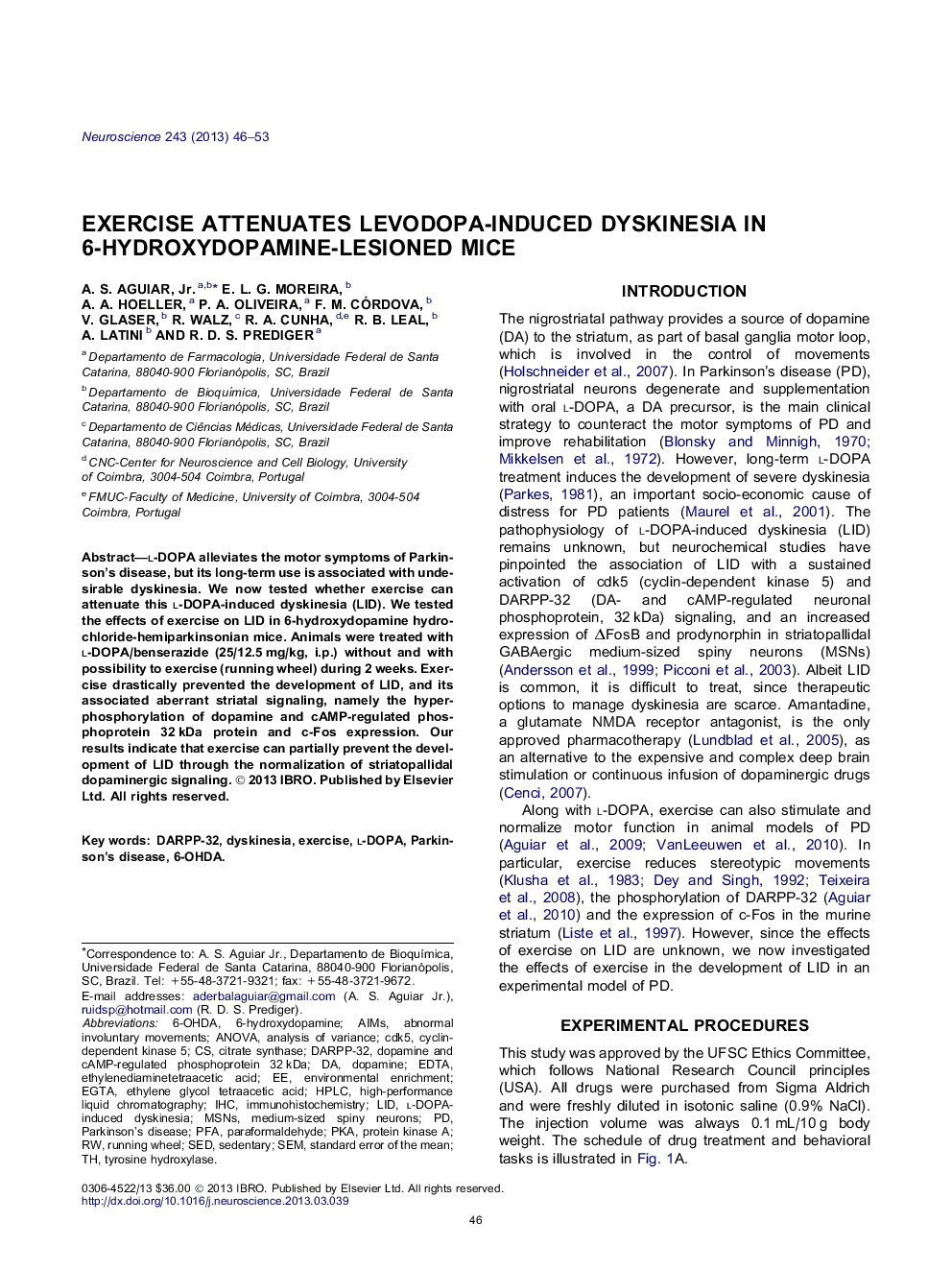| کد مقاله | کد نشریه | سال انتشار | مقاله انگلیسی | نسخه تمام متن |
|---|---|---|---|---|
| 4338001 | 1614833 | 2013 | 8 صفحه PDF | دانلود رایگان |

• Long-term l-DOPA induced dyskinesia in hemiparkinsonian animals.
• Voluntary exercise showed antidyskinetic effects.
• The abnormal movements of the trunk and limbs were attenuated, but not orofacial.
• Exercise prevented abnormal dopaminergic signaling in the striatum of dyskinetic mice.
l-DOPA alleviates the motor symptoms of Parkinson’s disease, but its long-term use is associated with undesirable dyskinesia. We now tested whether exercise can attenuate this l-DOPA-induced dyskinesia (LID). We tested the effects of exercise on LID in 6-hydroxydopamine hydrochloride-hemiparkinsonian mice. Animals were treated with l-DOPA/benserazide (25/12.5 mg/kg, i.p.) without and with possibility to exercise (running wheel) during 2 weeks. Exercise drastically prevented the development of LID, and its associated aberrant striatal signaling, namely the hyperphosphorylation of dopamine and cAMP-regulated phosphoprotein 32 kDa protein and c-Fos expression. Our results indicate that exercise can partially prevent the development of LID through the normalization of striatopallidal dopaminergic signaling.
Figure optionsDownload high-quality image (67 K)Download as PowerPoint slide
Journal: Neuroscience - Volume 243, 23 July 2013, Pages 46–53